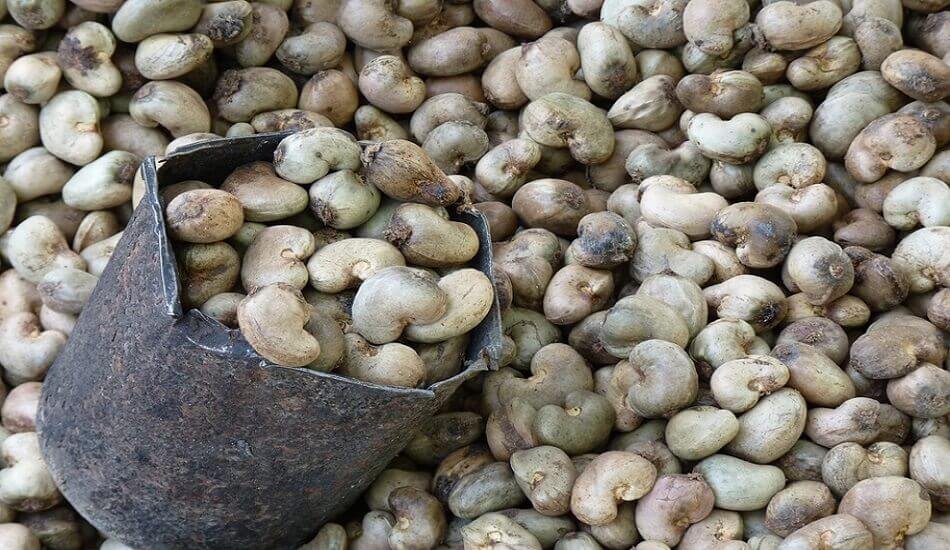Mangaluru emerges as a centre for the raw cashew nut (RCN) trade.
Mangaluru’s emergence as a centre for the raw cashewnut (RCN) trade is largely attributable to the repeal of farm laws. This is due to the fact that Karnataka was one of the first states to implement the laws that were initially passed in September of 2020 but were subsequently repealed in November of the previous year as a result of protests from a subset of farmers in the states of Punjab, Haryana, and Uttar Pradesh.
The agricultural produce marketing committee charge that was applied to goods that were traded outside of the market yard was eliminated by the Karnataka government as part of the farm reforms.
Before the agricultural laws were put into effect, Mangaluru was at a competitive disadvantage due to a tax of 1.5% on the value of RCN that was traded, regardless of whether the transaction took place inside or outside of the APMC market yard.
Also Read | Now, try some wine made from cashew apple a patented technology from NITK.
K Prakash Rao, the partner at the Mangaluru-based Kalbavi Cashews, told that the withdrawal of the APMC tax, the considerable processing base in Karnataka, and the logistical advantage from Mangaluru to key processing centres in the country are some of the reasons why Mangaluru is emerging as the hub for RCN trade. These are some of the reasons why Mangaluru is developing as the hub for RCN trade. Another reason is that Mangal
The increase in imports
According to him, India brought in approximately 8.5 lakh tonnes (lt) of RCN from East and West Africa during the previous fiscal year. A little less than half of that quantity was sent to Mangaluru. Over one litre (lt) of RCN was brought into the country within the past month alone. He estimated that India’s import may go over 10 lt this year, and he stated that Mangaluru might import about 5 lt during the period in question.
Bola Rahul Kamath, the proprietor of the Karkala-based Bola Surendra Kamath & Sons, stated that in the past, traders avoided Mangaluru due to the additional expense of 1.5 percent that they were required to incur, despite the fact that Mangaluru offered a number of other advantages for the trade.
Regarding the additional benefits, he mentioned that several processing centres in the states of Maharashtra, Goa, Kerala, and Tamil Nadu are located at an equal distance from Mangaluru, which makes it simpler to transport the commodities. At earlier times, cashew trading was conducted almost exclusively in Tuticorin.
According to Tukaram Prabhu, the Managing Director of the cashew brand MMP (M Madhavaraya Prabhu), which is situated in Mangaluru, the city of Mangaluru has always been innovative in terms of the processing that is done there. It moved quickly to implement the most recent technology that were available in the market.
Trying to avoid making any blind purchases
Since the APMC charge for businesses operating outside of the market yard was removed, the city of Mangaluru’s commercial sector has been thriving. Today, processors from other areas of the country can travel to Mangaluru to view the material, where they can then make their purchases. The risk of making an impulsive purchase of a cargo with an overseas origin is likewise diminishing as time goes on. The processors are receiving a significant benefit from this.
According to Prabhu, the removal of the APMC fee has been beneficial to the government as well because the government is now receiving an increase in money from the trade and the cashew industry is hiring an increased number of people.
According to Santosh D’Silva, who is the President of the Karnataka Cashew Manufacturers’ Association (KCMA), the dealers in Mangaluru have access to sufficient warehousing facilities. Some processors do not keep a lot of inventory on hand; instead, they make purchases determined by the needs of their business. The availability of the item is guaranteed throughout the entire year thanks to Mangaluru.
According to D’Silva, even though the APMC levy was collected in the past, it was not of much value to the farmers in the Dakshina Kannada and Udupi districts because the amount was not spent on enhancing cashewnut production in the region. This was the case even if the APMC levy was collected.
Rahul Kamath responded that the world cashew crop is growing in spite of the fact that some countries are encouraging domestic processing of the commodity. This was in response to the question of whether or not this trend would continue in light of the fact that some African countries are encouraging processing facilities in their own countries.
Also Read | Kerala aiming to produce its own Feni cashew apple brand.
He stated that the RCN crop throughout the world is approximately 40 lt, and that Mangaluru imported approximately 3.5 lt of that last year; nevertheless, this does not even account for 10% of the RCN crop around the world. The amount that Vietnam imports is approximately 15-16 lt. In spite of the fact that there will be complications in the long term, he did not anticipate any problems in the immediate future.
If this pattern is to persist over the course of a longer period of time, according to Tukaram Prabhu, there must be an emphasis placed on elevating the rate of domestic RCN production. According to Prakash Rao, India’s RCN production in the year 2021-22 was 3.45 lt. Karnataka was responsible for 82,500 tonnes of this total.


















Add Comment